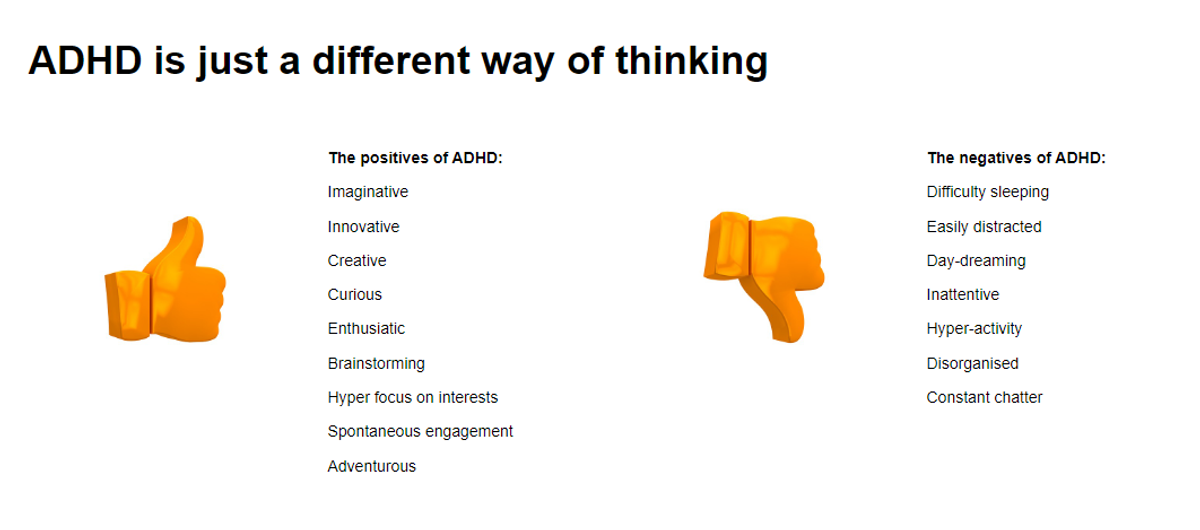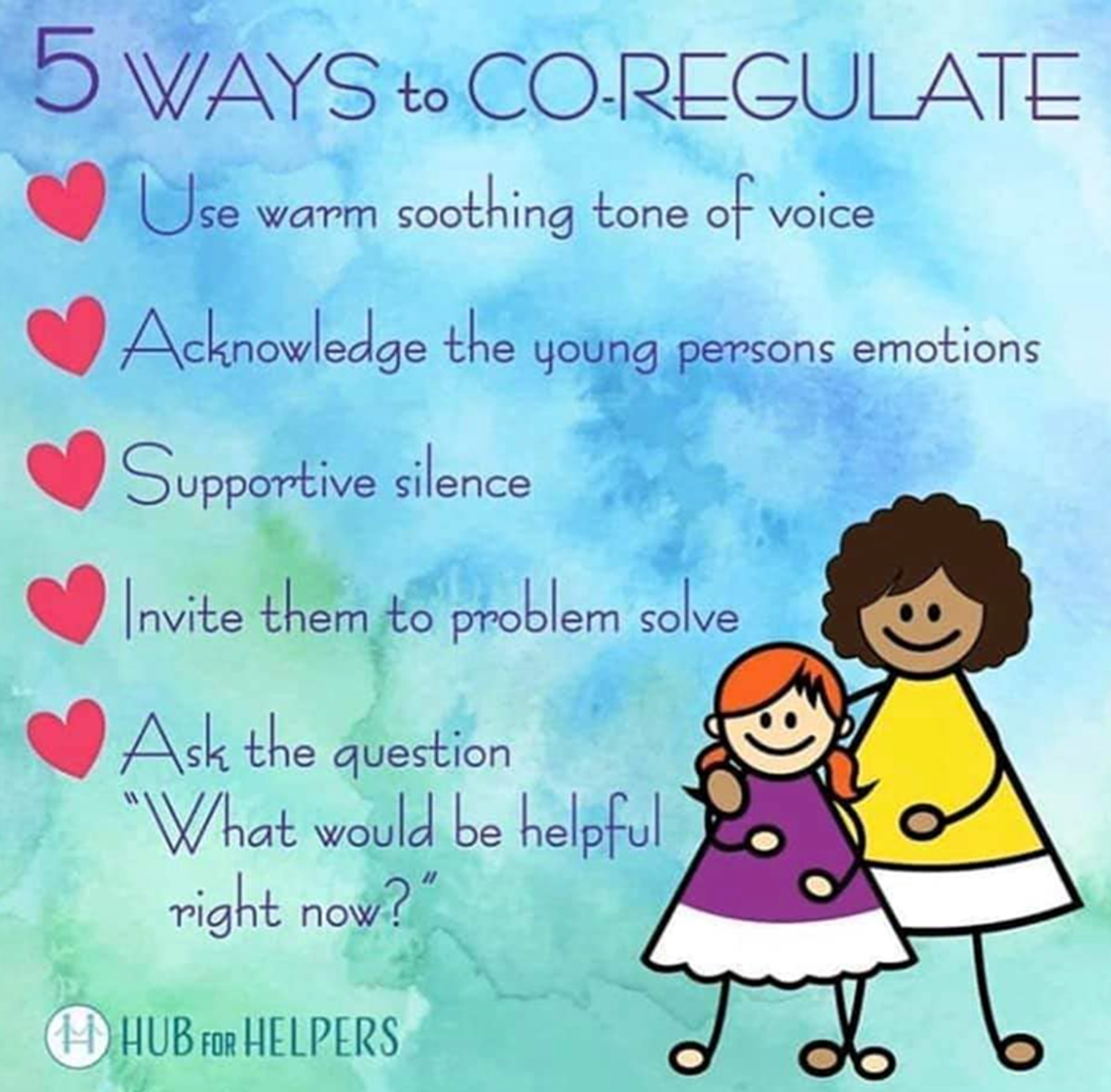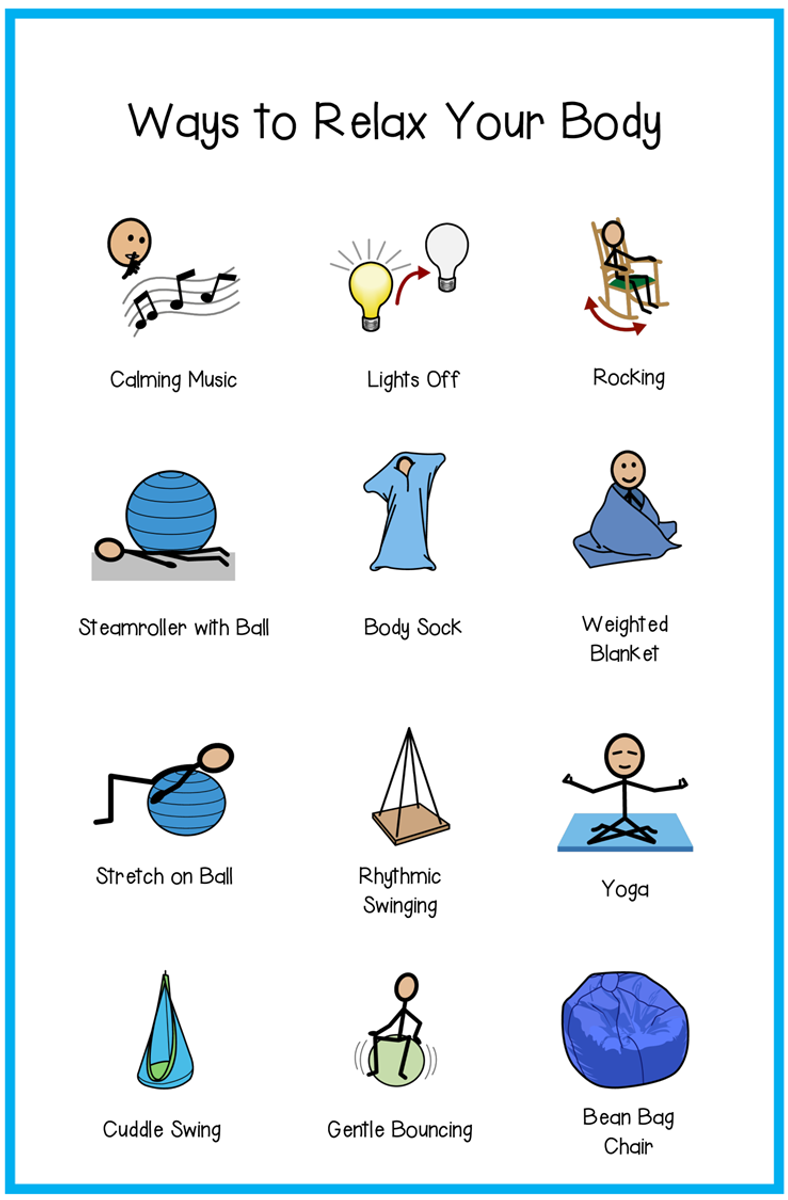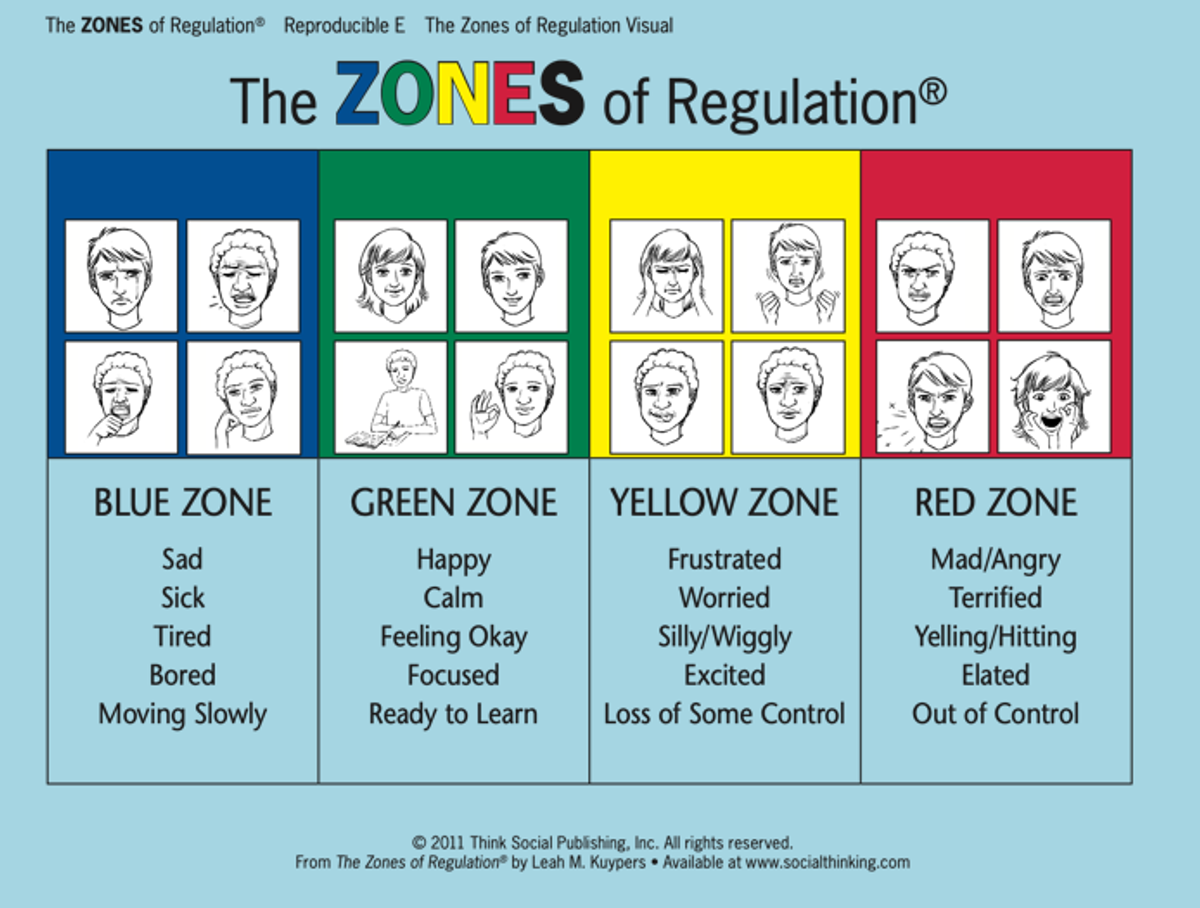Wellbeing
Tom and Carsten

Wellbeing
Tom and Carsten
Today we take a closer look at : Attention-Deficit Hyperactivity Disorder
What is it?
Attention deficit hyperactivity disorder (abbreviated as ADHD, and sometimes referred to as ADD in the past) is a neuro-developmental disorder that begins in early childhood and affects a person’s ability to exert age-appropriate self-control. Children with ADHD may find it hard to concentrate, become hyperactive or disruptive to others, are impulsive and find it hard to emotionally regulate.


The mental processes people rely on to self regulate are called executive functions. The executive functions enable a person to control their thoughts, words, actions and emotions. They also assist them to perceive and manage time, and to direct and manage their behaviour over time.
Executive functioning abilities are thought to develop sequentially, one skill building atop the next, starting at around age 2 and reaching full development at around age 30. Children with ADHD lag significantly behind in the development of their executive functions.
What are the signs?
Where should I go for more information?
Attention deficit hyperactivity disorder - ADHD/ADD symptoms, causes and diagnosis | healthdirect
https://www.adhdaustralia.org.au/about-adhd/
For a diagnosis of ADHD, individuals need to be referred to a behavioural paediatrician for further assessment. Contact Kim Ancrum if you would like some contacts in our area.
How can we help children to regulate?
*Sensory supports
*Calming techniques
*Thinking strategies to help organise thought processes




In the junior years at BBPS, all students are exposed to the Zones of Regulation as a way to build a common language about our emotions.


A child with ADHD will often benefit from working closely with a psychologist and/or occupational therapist to further develop an understanding of useful self-regulation tools.